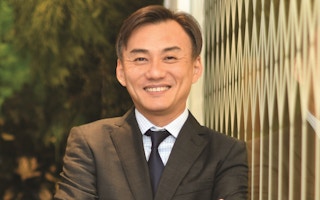Two months after announcing its sectoral decarbonisation targets, Southeast Asia’s second-largest bank Oversea-Chinese Banking Corporation (OCBC) has created the role of group chief sustainability officer (CSO) to lead its sustainability efforts on the lending and wealth management fronts.
To continue reading, subscribe to Eco‑Business.
There's something for everyone. We offer a range of subscription plans.
- Access our stories and receive our Insights Weekly newsletter with the free EB Member plan.
- Unlock unlimited access to our content and archive with EB Circle.
- Publish your content with EB Premium.
Mike Ng has been appointed to this new role, which he will assume on 1 August 2023, after over a decade with the Singapore-based lender. Ng first joined as OCBC’s head of structured and project finance, before expanding his role to drive sustainable finance solutions among large corporates in 2018 and assuming his current position as the head of the global wholesale banking sustainability office in June 2022.
OCBC told Eco-Business that a replacement for his current role has been secured internally, but did not reveal the individual’s name. The bank also shared that Ng will still be overlooking some aspects of global wholesale banking, and that the “dotted lines” of how various functions of the bank will report to the group CSO are in the process of being ironed out.
Ng is the latest executive to join the ranks of CSOs among regional rival banks DBS Bank and UOB, both of which appointed their first CSOs respectively in 2017 and 2021.
Ng’s new role will involve leading the group’s sustainability agenda across its banking and wealth management services, including efforts to support its clients’ transition into lower-carbon businesses, and delivering products and services to help clients achieve their climate action plans.
Over the past five years, Ng has advised corporate clients across different industries on their transition plans and has led the bank to make significant headway in financing renewable energy projects worldwide. While the exact size of the bank’s renewables portfolio has not been disclosed, Ng estimated it to be “multiples” of its coal portfolio at a media briefing for its sector-specific decarbonisation targets earlier this year.
According to OCBC’s press release, Ng was “instrumental” in the bank’s move to cease financing for new coal-fired power plants in 2019. OCBC was the first Southeast Asian bank to announce a coal withdrawal policy.
In a statement, OCBC Group chief executive Helen Wong said that the bank had to “curate the role of a CSO differently from other organisations”, emphasising that the person assuming the role needs a strong sense of business acumen and deep expertise in financial products and services, beyond expertise in sustainability and climate change. For this reason, Ng is a “natural fit” given his experience in sustainable finance, she said.
The bank’s sustainable finance commitments reached S$47 billion (US$35 billion) as of March 2023. The bank is aiming to make S$50 billion in sustainable finance loans by 2025. OCBC became a signatory to the Net-Zero Banking Alliance (NZBA), a United Nations-convened initiative for banks to decarbonise the real economy, in October last year.
OCBC’s sectoral decarbonisation targets set in May follow DBS Bank‘s pledge last September and UOB‘s in October. Its announced interim and 2050 targets cover six sectors, including power, oil and gas, real estate, steel, aviation and shipping. The bank also pledged to cease project financing to upstream oil and gas, though environmental activists have expressed concern over how its targets will be met without restrictions on financing corporations expanding fossil fuels.














